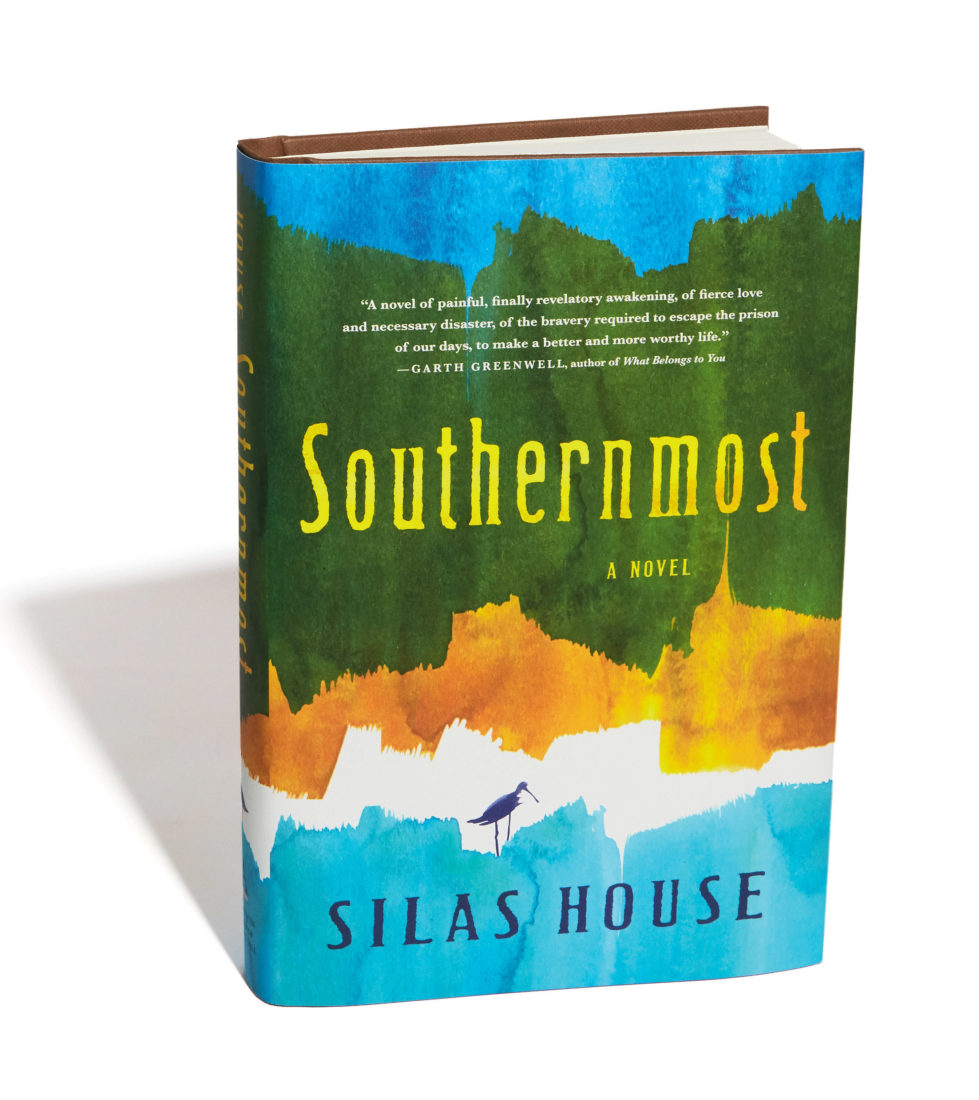In the story of the Flood, per the book of Genesis the floodwaters came to cover “all the high hills…under the whole heaven” until, by and by, “all in whose nostrils was the breath of life” perished (save those, of course, aboard Noah’s ark). Biblical scholars have called this a reversal of creation—a way for God to enact a sort of do-over.
There’s a smaller-scale flood at the start of Southernmost, the latest novel from Kentucky native Silas House, but bobbing in its ferocious churn are some hefty Old Testament evocations: “the massively swollen river,” House writes, “supping at the edges of the lower fields, ten feet above its own banks, a foamy broth climbing so steadily he could actually see its ascent,” with the waters spreading “like the end of time had come to Cumberland Valley.” The flood’s effect on House’s main character, a Pentecostal preacher named Asher Sharp, is likewise large, and not without its own biblical echoes: It’s the catalyst for Asher to enact his own sort of do-over, reversing his own personal creation.
The biblical Flood, being divine judgment for earthly violence and corruption, was precipitated by a moral crisis; in Southernmost, the flood precipitates the moral crisis. After Asher’s eight-year-old son, Justin, disappears, to search for his missing dog, Asher locates him in the company of two rescuers: a gay couple, new to the Middle Tennessee countryside, who’d come upon Justin after watching their house get swept downstream. Asher offers the couple refuge from the storm, but his wife objects to sheltering gay men beneath the same roof as her son. She also objects—along with most of Asher’s congregation—when the same couple tries attending services at their church. “We have to stand up for what’s right,” she tells him. And there we behold the crisis, because what’s right to her feels, to Asher, deeply wrong. “You’ve gotten belief confused with judgment,” he tells her, but to little avail. Asher loses his church. He loses his marriage. And then, thanks to cell-phone footage of him delivering a tempestuous plea for tolerance to his unmoved congregants, he loses custody of his son.
As with Jesmyn Ward’s recent Sing, Unburied, Sing, what begins as a domestic drama soon veers, unexpectedly, into a road novel. Desperate and despondent, Asher kidnaps Justin from his grandmother and takes him south to Key West. Why there? Because the last word Asher ever received from his brother, long ago shunned by the family (Asher included) for being gay, bore a Key West postmark. Asher’s beachfront quest to distinguish right from wrong, and grace from disgrace, is abetted by a pair of female Conch Republic eccentrics and undertaken under the pressurized suspense of Amber Alerts and slow-driving police cruisers. It’s a white-knuckle morality play.
House, evoking writers such as Rick Bass and Wendell Berry, serves up earnest, plainspoken characters nestled into lavishly drawn natural settings. He details the flood, for instance, with almost alarming vividness, the “butterscotch-colored water,” filled with “tree limbs and garbage,” frothing around Asher’s legs, or the “great screeching grind” of an unmoored house pirouetting downriver. He paints, too, an equally if less violently vivid portrait of Key West, where the twilight sky “is the pink of grapefruit meat,” the waves are “crimsoned” in the sunset, and when darkness falls, the star-crowded sky “seems as much silver as blue-black, a sky not so much pocked by stars as made by them.” He is that rare stylist on whose descriptions— incantations, really—one wishes to linger.
At its heart, though, Southernmost is a novel about interior landscapes—the knot of fears, convictions, beliefs, regrets, and love tangled within us all. “Being afraid of somebody who’s different’ll make an awful meanness come over you,” Asher tells his congregants. “You can use the Word to judge and condemn people or you can use it to love them.” The covenant God made with Noah, after the Flood, is for Asher, then, to be read without exemptions or exclusions: “And from each human being, too, I will demand an accounting for the life of another human being.”









